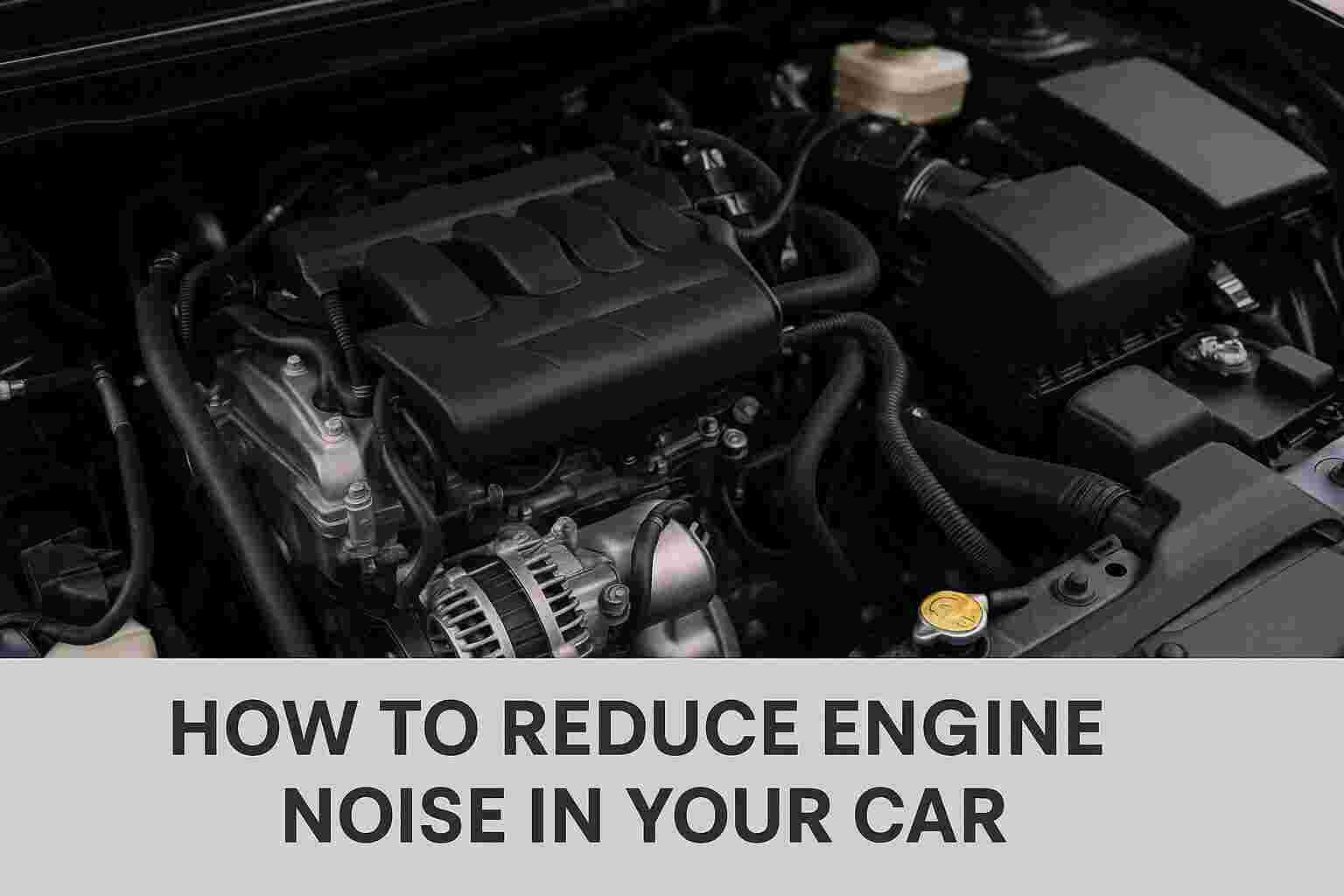


Tired of engine noise? Learn how to reduce engine sound using soundproofing techniques like sound damping sheets and deadening materials for your car.
You’re on the road, windows up, expecting a pleasant, quiet ride—but the engine hum won’t stop. It rumbles through the cabin, which makes every trip a noisy one. If you’ve always wished for silence behind the wheel, you’re not alone. Excessive engine noise can lead to fatigue, stress, and even reduced focus. What is the good news? There is a fix. With effective soundproofing techniques and the correct materials, like as sound damping sheets, you can reduce the unwanted noise and restore calm to your drive.
Let’s take it step by step.
When your engine roars louder than your playlist, it can quickly ruin an otherwise smooth ride. But why is engine noise such a problem in some vehicles? It often comes down to a lack of insulation, poor sealing around engine compartments, or aging car parts that amplify vibration and resonance.
Engine noise usually travels through the car’s firewall, floorboards, and even the air ducts, making it feel like the sound is everywhere. Diesel engines, high-performance vehicles, and older cars tend to be louder because of combustion force, mechanical wear, or outdated insulation.
Identifying where the noise originates is the first step toward choosing the right soundproofing solution.
Not all soundproofing materials are created equal—especially when it comes to reducing engine noise. Engine compartments are exposed to high heat and continuous vibration, so the materials must be heat-resistant, dense, and durable.
Sound damping sheets are designed to absorb and dissipate engine vibrations before they echo through the car’s body. They’re especially useful under the hood and on the firewall.
For extra noise reduction, sound deadening sheets can be covered with foam-based insulation. They provide an additional layer of silence between you and your engine, are lightweight, and are simple to cut.
These combine mass-loaded vinyl and foam to block low-frequency noise, like engine rumbles. They’re typically used in high-end automotive soundproofing projects.
Adding foam tape and soundproof sheets around the edges of your car’s squeaky dashboard panels can reduce echo and cabin rattle.
Rubber-based sheets, like butyl, tend to outperform foam in engine areas because they are:
|
Feature |
Foam Sheets |
Butyl Rubber Sheets |
|
Heat Resistance |
Moderate |
High |
|
Best Placement |
Cabin, roof, doors |
Firewall, hood, floorboards |
|
Durability |
3–5 years |
8–10 years |
|
Noise Reduction Level |
Medium |
High |
|
Moisture Resistance |
Low to moderate |
Excellent |
|
Installation |
Easy to cut and apply |
Requires firm pressing (roller tool) |
Now that you’re ready to soundproof your car and enjoy a quieter ride, the next question is—where should you get the best materials? That’s where we come in!
Polycrafts Pvt. Ltd is a trusted automotive parts and accessories manufacturer in Pakistan, offering top-tier sound deadening and damping solutions for all types of vehicles. Whether you need durable butyl sheets, heat-resistant hood liners, or easy-to-install soundproofing kits, we’ve got everything you need.
Don’t settle for a noisy ride. Soundproof your car with confidence—choose Polycrafts Pvt. Ltd for proven, high-performance solutions that keep your journey smooth and silent.
Here’s the takeaway:
Use butyl rubber-based sound deadening sheets on your firewall, floorboards, and under the hood.
Pair them with sound damping sheets for maximum vibration control.
Don’t skip surface prep—it’s the key to long-term performance.
Older cars will feel brand new with proper soundproofing.
“Silence is the sleep that nourishes wisdom.” – Francis Bacon
And it all starts with your drive.
